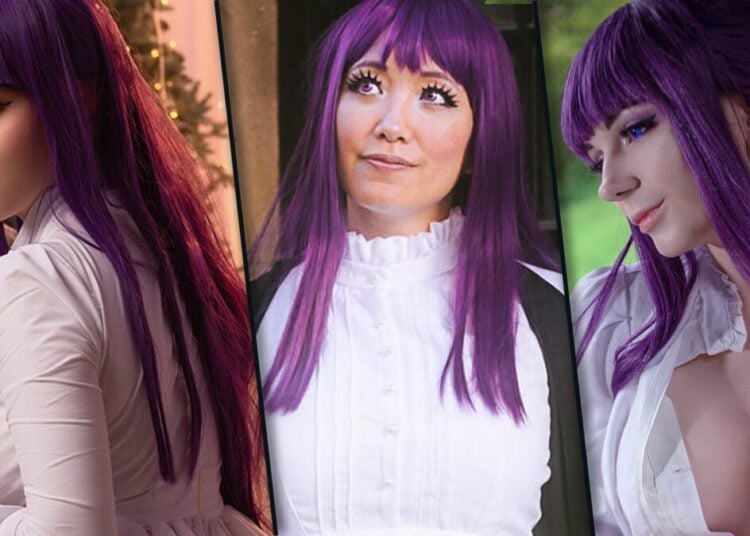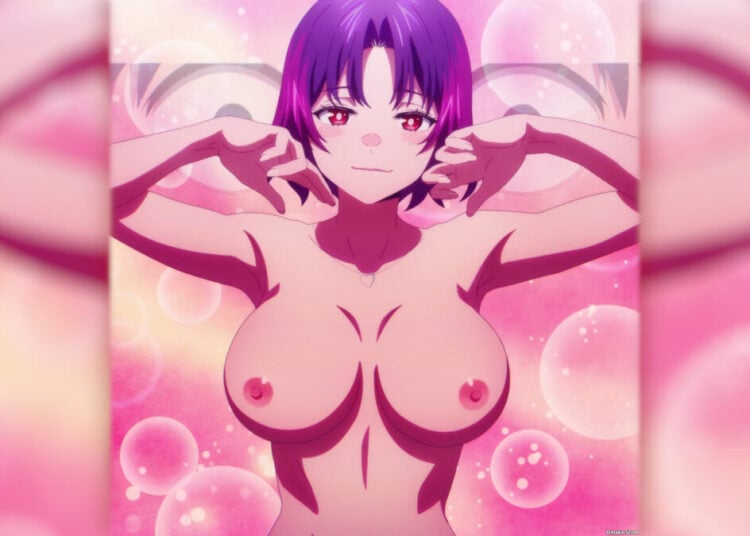Warning: This review covers the events of episodes 27 through 52 of Space Brothers, so there will be spoilers.
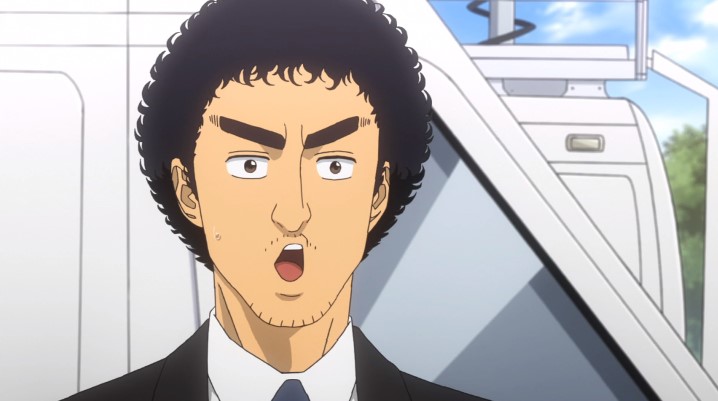
If ambition is the theme of the first quarter of this series, mortality is the theme of the second quarter, as both Mutta and Hibito face some life or death events within the next 26 episodes of Space Brothers.
A Cast of Tsunderes
In the second quarter of Space Brothers, the series deftly splits its time between the two brothers. Mutta has almost achieved his dream of becoming an astronaut, but after being selected to be an AsCan (Astronaut Candidate), he must endure more training including learning how to pilot a jet and an intense desert survival course. Hibito, meanwhile, achieves his dream and launch into space. Unfortunately, more challenges await both of them as Mutta must deal with a no-nonsense training instructor named Vincent Bold, who would love to see him fail, and Hibito has an accident on the moon which almost kills him.
As with the first quarter of the series, a huge part of what makes Space Brothers so enjoyable is its very large and varied cast of characters who come from all walks of life. This is especially true after Mutta moves to Houston and meets the other AsCans from around the world. The most interesting part about this cast, however, is just how heavily laden with tsunderes it is.
Follow my logic here.
Space Brothers takes great joy in introducing completely unlikeable characters, starting with Yamato Mizoguchi and continuing on with Azuma Takio, Vincent Bold, and many others. All of these characters start very cold and prickly, much like your garden variety tsundere would. What we eventually learn, however, is the various reasons why these characters are like they are and why they’re redeemable. While none of them become the swooning dere dere character type, most of them end up opening up and showing their vulnerable side. I can’t emphasize how much I love the characters that make up this series. From Azuma Takio to Deniel Young to Vincent Bold, everyone in this series has a story to tell and wisdom to share.
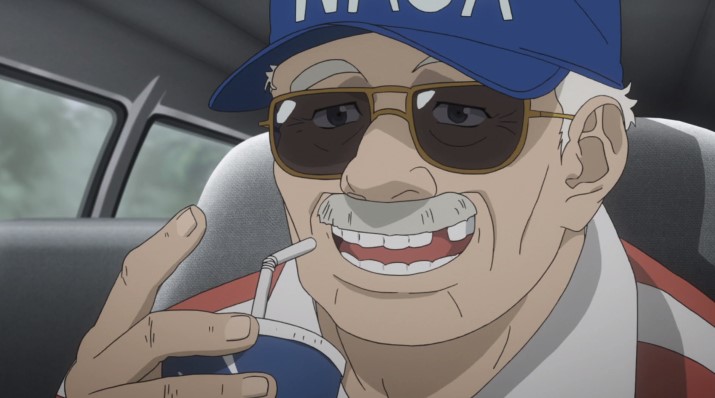
Another aspect that continues on from the first two cours is the look at character origin stories. Space Brothers established early the idea that everyone comes from a different place and has unique experiences, while emphasizing that there is no one right way or single path to achieving your dreams. This is especially apparent in episodes 35 and 36, which feature the origin stories of Kenji Makabe and Serika Itou.
Gripping Events
Beyond the characters, the events in this quarter of the series are some of the most gripping moments you’ll ever see in anime. I’m not saying this to be hyperbolic, it’s the truth. In the beginning, Hibito’s mission to the moon is rather uneventful, besides everyone not being used to the lack of gravity and bumping their heads on the ceiling repeatedly. In episode 39, however, things take a sudden and dramatic turn when Hibito and his crewmate Damien get into an accident that sends them to the bottom of a ravine. Unable to contact anyone for help, the situation escalates to the worst-case scenario within only a couple of episodes. Luckily, Hibito has previous training to fall back on.
What’s good about watching this series today is that you’re able to breeze through these episodes one after another until you see the ultimate resolution of the story arc. I recall back in 2013 watching this series weekly as it aired and the week-long wait was torturous! Hibito trying to navigate an emergency situation is some of the best drama in anime history. Plain and simple. I dare anyone to disagree with me.
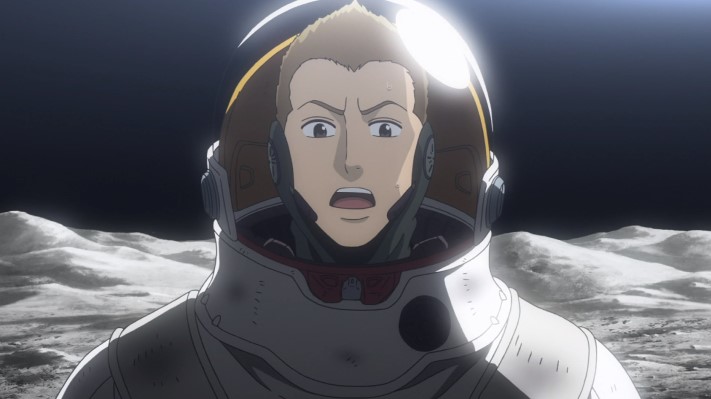
Hitting the Right Note
Similar to the first two cours, the background music is a big selling point of the series. Composed by Toshiyuki Watanabe, the music is arguably one of the most important but under-mentioned elements of the whole show. How Watanabe managed to create such timeless music that’s never stale, no matter how many times it’s reused, boggles my mind.
As with the first quarter of Space Brothers, these two cours aren’t perfect and there are aspects which could be improved. Specifically, this series could have been dubbed into English. I know that many fans feel this series is perfectly fine in Japanese, but due to the multinational cast of characters, dubbing the entire series into English would be a worthwhile and appropriate venture.
This point is particularly relevant in episode 47, when Komachi takes Serika and Ena out to find a place to live. She takes them around and talks an apartment manager into cutting them a good deal. A few seconds later it’s commented on how Komachi speaks such excellent English, and yet she was actually speaking Japanese, the entire time. Little things like that make the series a little harder to get into at times and I will die on the hill of getting Space Brothers an English dub.
A Perfect Series?
I’ve said before that Space Brothers ranks highly on my list of all-time favorite series and that opinion will continue to stand for many years to come. There is little to nothing that this series could do to change my feelings for it. Filled with heart, laughs, and genuine soul, Space Brothers is as close to a perfect series as you can get. These episodes prove it.


